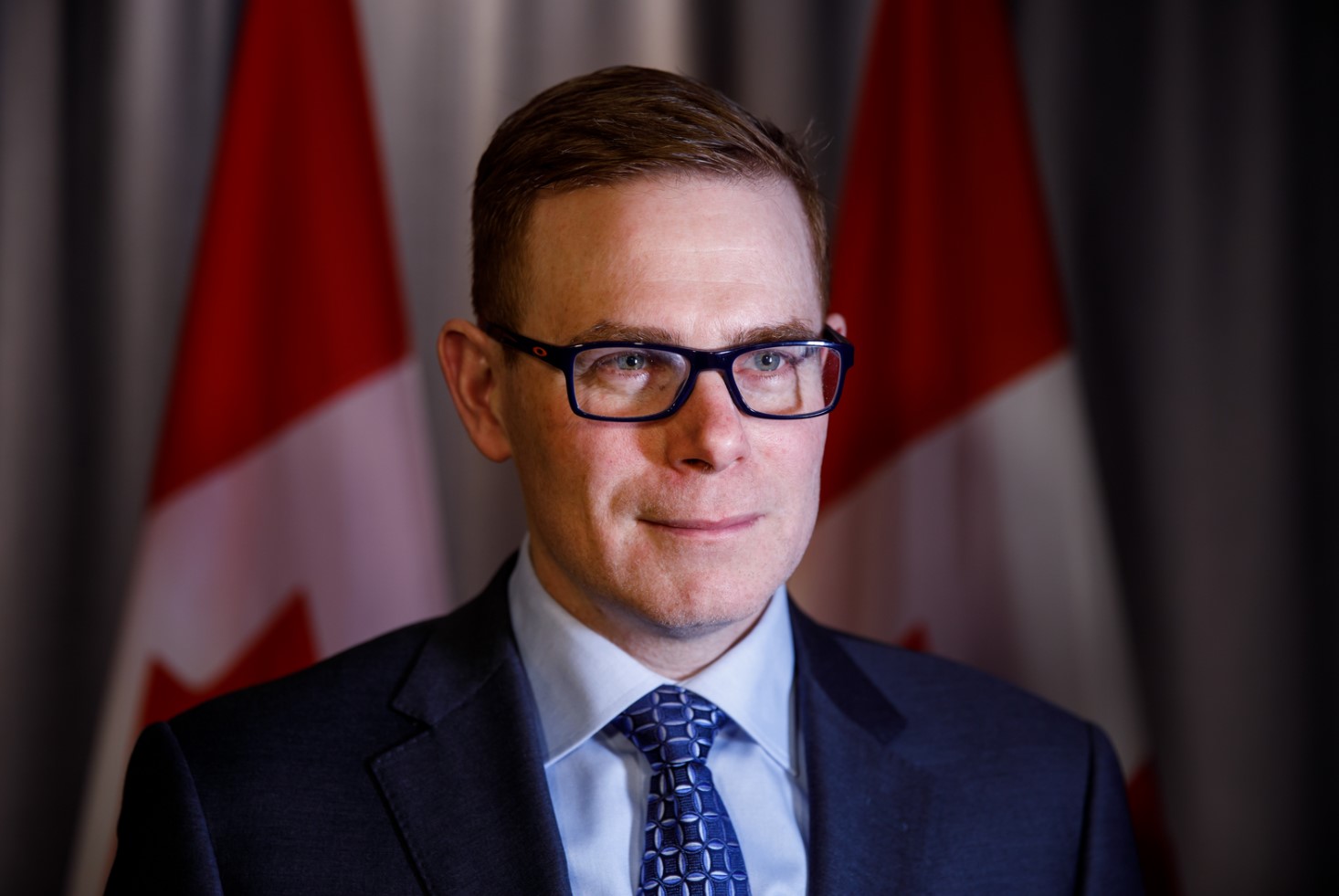In this interview Kathryn Harrison and Andrew Leach discuss the research and findings of their recent article in Environmental Politics: Climate policymaking in crisis: the impact of declining oil prices, COVID-19, and the Ukraine war in Canada. This article is from a forthcoming Symposium, titled “Climate Policy in an Era of Disruption: The Impacts of COVID-19 and the War in Ukraine on the United States, Russia, Canada, and EU’, see also the interview with Laura A. Henry and Lisa McIntosh Sundstrom on their case study of Russia.
Congratulations on your recent article! What is the key message that you hope people take from this research?
KH: Thank you. We’re very happy to see our work published in Environmental Politics. I’d say that the most important takeaway from our article is that, contrary to prevailing wisdom, economic shocks don’t necessarily lead to a weakening of environmental policy. In fact, despite having a very carbon-intensive economy, Canada strengthened its climate policies in the wake of a series of economic shocks from 2014 to 2024. It’s also worth noting that for the most part those policy decisions were a response to domestic political forces, rather than external shocks.
AL: As Kathryn writes, we find that, up to the point of writing this paper, Canadian climate policy was remarkably resilient to changes in the circumstances negatively affecting the Canadian economy. There was a lot of political pressure to abandon or change Canada’s approach to climate change mitigation from 2014 through 2022. Despite these pressures, and three Canadian elections, measures including regulations, spending programs, and carbon pricing to reduce emissions were all either increased in stringency or maintained through these crises.
You focus on three domestic determinants of Canadian climate policy, but conclude that a “different government could have seized the same opportunity to go in a very different direction”. Can you explain why?
KH: Crises can open the door for big policy changes, but it’s not necessarily obvious which of many paths will be taken. For example post-COVID, Canadian politicians faced competing political demands. On one side, an oil and gas industry already struggling since the fall in the global price of oil in 2014, renewed its calls for public subsidies and relaxation of environmental standards. On the other side, environmentalists advocated for “building back better,” by directing stimulus spending to clean growth.
Within Canada’s political institutions, which combine a parliamentary system with a single member plurality electoral system, the governing party has considerable authority to make those calls. From 2015 to 2025, climate change was a priority of the Liberal government led by Prime Minister Justin Trudeau. Trudeau’s government maintained its course on carbon pricing and regulations, and for the most part directed Canada’s stimulus spending to clean growth, though there was also support for emissions reductions by the oil and gas industry. We know that a Conservative government would not have made the same calls because they said so though themselves! The Conservative Party consistently opposed the Liberal government’s actions in response to each of the three economic shocks, and called instead for deregulation and more financial support for the oil and gas industry.
So does this have wider implications for the comparative importance of domestic versus international contexts in democratic states?
KH: Canada is a critical test for climate policy surviving economic shocks. After all, Canada has a particularly carbon-intensive economy, which reflects both emissions-intensive production of oil and gas for export and Canadians taking advantage of their own abundant fossil fuels. If tough economic times inevitably lead to weaker climate policy, you’d certainly expect to see that in Canada. Yet the opposite happened. That suggests a broader lesson about the potential resilience of climate policy, though of course it doesn’t follow that external shocks make climate policy easier.
AL: I think there are also lessons here given the context of energy production. When talking about climate change policies, conversations tend to focus either on technological solutions like carbon capture or supply-side solutions like leaving resources in the ground. I think one of the takeaways from our piece is how much circumstances alter the cost of supply-side approaches, and how that can impact political will to take stringent action on climate change.
You conclude with a reflection on the effect of Trump’s presidency. What does your analysis suggest will happen in the next few years?
AL: The second Trump presidency remains a chaotic influence on Canada. First and foremost, Canada’s 2025 election would have ended very differently but for the Trump tariffs and 51st state rhetoric., With new data out this month, we’re seeing the real economic effects of tariffs. But we’re not going to see the impacts on business investment and government policies for some time. The most important effect, from a climate perspective, might well be the increased energy nationalism that has resulted from the Trump attacks on Canada. We are seeing a renewed push not just for alternative export markets, but for expanded exports backed by expanded fossil fuel production. Investments of this sort, even if they can be approved and built in short order, will have generational impacts on the structure and resilience of our economy and on our emissions trajectories.
KH: This fourth crisis is an especially tough one for Canada. The US’ rollback of greenhouse gas emission standards makes it hard for Canada to maintain more-demanding environmental standards, since the business community will argue that they’re being competitively disadvantaged relative to our main trading partner. The auto industry is especially challenging. Not only is Canadian and US production highly integrated, but plans to manufacture electric vehicles in Canada are now being undermined by lower expectations of US demand for those vehicles.
But as with previous crises, this one is also a moment of choice. US tariffs demand urgent action to diversify Canada’s export markets. And this is all still happening at a time of increasing global climate action, even if that may be a little slower now. Will Canada build new oil and gas infrastructure or instead emphasize sectors like critical minerals and clean tech? I wish I knew!
Finally, what’s next? Are you publishing more on this topic?
KH: Andrew is an economist and I’m a political scientist. Our interdisciplinary collaboration was a total pleasure. It was great to draw on our complementary areas of expertise. We don’t have current plans for further collaboration but who knows? Perhaps we’ll put our heads together again in a few years, when we’re in a position to analyse how Canadian climate policy fares this time round. In the meantime, I’m finishing a book on the comparative politics of carbon taxes, which compares Canadian experience with Australia, France, and Ireland.
AL: I’ve been more focused on federalism questions of late, something about which Kathy has written extensively so it would be fun to collaborate on work in that space eventually. I’m also focussed a lot more on utilities regulation in my teaching, so hoping to map that into some research papers in the near future.
Bios:

Kathryn Harrison is Professor of Political Science and Brenda and David McLean Chair of Canadian Studies at the University of British Columbia. She received Bachelor’s and Master’s degrees in Chemical Engineering before completing her PhD in Political Science. Professor Harrison has worked in the oil industry and as a policy analyst for both Environment Canada and the United States Congress. She has published widely on Canadian and US climate policy. She is chair of the Expert Advisory Panel on climate change mitigation of the Canadian Climate Institute, and a member of British Columbia’s Climate Solutions Council.

Andrew Leach is an energy and environmental economist and is Professor at the University of Alberta, with a joint appointment in the Department of Economics (Arts) and the Faculty of Law. He has a Ph.D. in Economics from Queen’s University, and a B.Sc (Environmental Sciences) and M.A. (Economics) from the University of Guelph and recently completed an L.L.M. (Constitutional Law) from the Faculty of Law at the University of Alberta. His research spans energy and environmental economics with a particular interest in climate change policies and the law. Outside of work hours, his free time is spent with his two kids, Will and Caroline, as well as cycling and arguing on Twitter.
